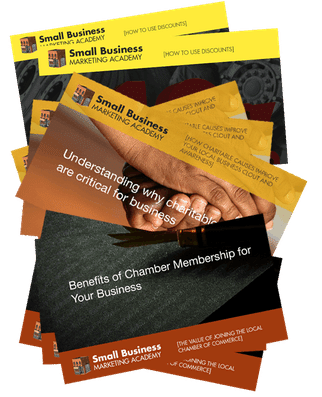

- Directory
- Recent
-
Featured
-
Featured
- Recent
-
- Programs
- Digital Nomad
- Side Gigs
- Resources
Select Page
10 people find this post amazing!

Keyword research and analysis is one of the most critical elements of your content preparation, planning, and production. How do you link SEO and keyword analysis to content marketing? How do you produce content that your prospects will find irresistible? How can you expand, grow and consolidate your profitability with an intelligent content strategy?
This is a dilemma every business owner, blogger and content producer agonizes over every day. A visitor to your website decides within a few seconds if she is going to stick around and explore it or leave for another destination. Knowing your customers is the key here. Your keyword research should help illuminate what they want and why they want and need it. From there, you can determine how your product helps them solve their problems and achieve their goals.
This knowledge helps you strategically plan your content marketing and brings several benefits to your business.
When your content seems to magically answer their unvoiced questions, visitors arriving at your website via search engines will be highly impressed.
Keyword research and analysis helps you to understand your prospective customers. By knowing what search terms they use to find your product or service offerings, you gain insight into their needs and desires — what problems they want solved, what they expect to find on a destination website and so on.
By reviewing the keywords searchers are using — and closely analyzing the search results that surface for those keywords — you can tell, with reasonable accuracy, where a searcher is on the decision-making continuum that ends in closing a sale.
For example, if you run a hotel website, then a visitor arriving at your site from a search on generic or broad terms (like “Norway holiday”) is less likely to book a room than one who is running more specific queries (like “budget hotel in Oslo” or “Oslo hotel vacancy 15th March”).
Thus, if you’re receiving significant traffic from visitors searching on these generic terms, you might want to consider creating and optimizing content that better speaks to their needs and is designed to move them further down the sales funnel.
When your content is designed to match user intent, you will grab attention instantly — and retain it for as long as you meet your visitor’s unspoken needs.
Another advantage of keyword research and analysis is that your communication will be more effective, targeted and specific. Your content can be crafted in a manner such that a reader intuitively feels that you are “speaking their language.”
You develop empathy more easily. You connect more deeply. Engage with more sincerity. Convince, educate, inform and guide more meaningfully. And all of this happens because you meet the user where they are at the moment and lead them toward a destination that you know they want to reach.
With keyword research, you can construct content that perfectly targets your message while appealing to visitors who use specific search terms to find you. Each piece of content can be individually designed to speak to a specific, clearly defined segment of your overall market.
When your message is so finely targeted at a particular interest group or niche audience, it becomes very effective at getting prospects to do what you want. Conversion rates are higher. Marketing expenses go down.
Strong keyword research allows you to correctly prioritize content. It can inform your editorial calendar, as you’ll have a reasonable idea of what content is most in demand and when it is likely to deliver the greatest impact on your business goals.
If you focus on the right keywords and plan accordingly, your content will reach prospective customers right at the moment they are starting to look for it.
Many SEO and content experts recommend creating “relevant content” for your target keywords. But relevant content is no longer adequate; it isn’t ambitious enough. As search engine algorithms grow more sophisticated and are better able to surface accurate results for a given query, your “relevant” content will just drown in an ocean of other “relevant” pieces.
Instead, you should aim to create amazing content — the kind that makes your website the ultimate destination for your audience. To win at SEO, your content should go above and beyond that of your competitors, anticipating any and all questions a visitor might have (based on the keywords they’re using) and answering those questions fully.
An excellent content strategy will force people to remember you. It is good for branding. Others may even link to your content; if you’re lucky, you’ll receive high-quality backlinks from authority websites in your niche, including newspapers, industry leading sites and thought leaders who will share it on social media. All this improves your SEO and drives more free traffic your way.
Many people think working with keyword data cramps creativity in content. It doesn’t have to be an either-or choice. You can be creative while using search data effectively.
The truth is, without data, you run the risk of wasting time and money on content that won’t move you closer to your business goals. Without granular and detailed keyword data, you’re just another person with an opinion, wasting your (or your client’s) money on a risky gamble.
Stop taking chances and secure your business’s future by basing your content marketing on solid search data and knowledge.
Are you beginning to see how great an impact keyword-focused content can have on sales, revenue and profit? If you’ve been ignoring this aspect of SEO for a long time, you are probably damaging your business, limiting its potential and holding yourself back from maximizing revenue.
With the right guidance on keywords and a smart content strategy, you’ll be able to communicate more effectively with customers. When you know your readers’ innermost thoughts and can intuit their intent, it is easy to reverse-engineer this insight so that it is mirrored in your content.
Doing this dramatically improves the level of engagement with your audience. People no longer merely like your content… they love it. They’ll share it with others. And come back for more of it. They’re influenced and informed by it. And this, in turn, improves conversion rates, generating more sales and higher profits.
Source: searchengineland.com
Table of Contents

Achieve Your Goals Now!
